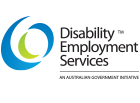
Anyone, at any point in their life, could suffer an injury that would impact on their ability to work and live life the way they choose. However, with reasonable adjustments, along with the right employer, there is no reason why a person with an injury cannot be successful in the workplace.
A person’s injury does not change their ability to do the job; it is important to recognise how physical adjustments, language, education and leadership play an important role in supporting all employees to thrive, no matter their experience. These adjustments go further than creating a workplace that is inclusive of people living with disability or injury; it recognises building a company culture that is diverse and one that makes everyone feel included. There is a great article on atWork Australia’s website that outlines 6 Practical Ways to Effectively Support Employees Living with a Disability.
What are reasonable accommodations?
A reasonable accommodation is any workplace adjustment that allows a person to do their job safely and productively, in an inclusive environment. They’re very often the only thing that distinguishes someone with an injury in the workplace.
Here are some examples:
- Allowing a person living with an injury to have some flexibility in their working hours, such as working part-time, starting and finishing later, or teleworking for part of the week;
- Introducing a fair, more equitable recruitment processes, such as standardised interviews;
- Redistributing minor duties (not inherent requirements of a job) that a person living with injury finds difficult to do;
- Buying or modifying equipment, such as speech recognition software for someone with vision impairment, or an amplified phone for a person who is hearing impaired; and
- Height-adjustable workstations.
If you would like to learn more about how you could create a more diverse and inclusive workplace, register for atWork Australia’s Disability and Diversity Awareness Training.
What are my responsibilities?
It is everyone’s responsibility to contribute towards creating an inclusive workplace. Although, leaders need to take more responsibility by leading by example; creating a culture that celebrates inclusion and keeping people accountable to ensure they are contributing to an inclusive culture.
For managers, it’s very easy to make workplace adjustments to remove barriers to employment when needed. Many workplace adjustments involve applying good HR practice that you would do for any new employee. For instance, changes to employment processes can give a person a more equal chance at being recruited and promoted. If you need support to develop a diverse and inclusive workplace, atWork Australia can help to plan your workforce.
How to accommodate employees who are injured
-
Talk to your employee about their circumstances
Reasonable adjustments are personalised and should be tailored to meet individual requirements and circumstances. The employee will understand their abilities and what restrictions they have and are often the best person to advise what adjustments are needed.
-
Identify tasks your employee might have difficulty carrying out
Identifying tasks that an employee with an injury might find challenging and allowing them to undertake tasks they are more confident and comfortable to complete, may benefit the entire team. This will allow the injured employee to fully contribute towards the overall objectives, while other employees can spend more time focusing on their other duties. Delegating tasks based on the employee’s strengths will help to create an efficient and high performing team.
-
Make reasonable workplace adjustments
To make reasonable adjustments the inherent requirements of the job need to be understood. The inherent requirements of a job relate to what needs to be accomplished rather than how the job is accomplished. The focus should be on how the person’s injury affects their ability to undertake their work and what adjustments can be made to overcome this. The National Work Health and Safety and Workers Compensation Authority published a great article on how to provide reasonable adjustments.
-
Consult with your employee’s doctor or therapist
It may be prudent to first request the employee to obtain a medical assessment of their present fitness for work. This assessment will help determine the employee’s physical capacity to perform their core duties without continued adjustment, as well as help minimise the risk of exacerbating the injury at work
-
Highlight your policies on reasonable adjustments
When determining the reasonable adjustments that can be made to an employee’s position, employers must consider whether the employee would be able to perform an adjusted position in other departments. When considering whether adjustments are reasonable, an employer is entitled to consider the impact on efficiency, productivity, and customer service. Employers are not required to create a new job for an employee who is living with an injury, but they may be required to move staff around within a position to allow the employee to undertake a high proportion of other tasks.
-
Review and reassess your employee’s needs
When determining the reasonable adjustments that can be made to an employee’s position, employers must consider whether the employee would be able to perform an adjusted position in other departments. It is important to regularly review workplace adjustments to ensure they are still meeting the employee’s needs.
Conclusion
Reasonable adjustments do not have to be expensive or hard to implement, it could be as simple as giving an employee greater flexibility to structure their workday. Business leaders are constantly reviewing processes to find new, more effective and efficient ways to achieve the organisational goals. Therefore, making reasonable adjustments for an injured employee makes good business sense. They allow employees to be more efficient and effective, which benefits the entire team and contributes to achieving organisational goals.
To learn more about how atWork Australia can support you to create an inclusive workplace visit: atworkaustralia.com.au/employers/ or call us on 1300 080 856


